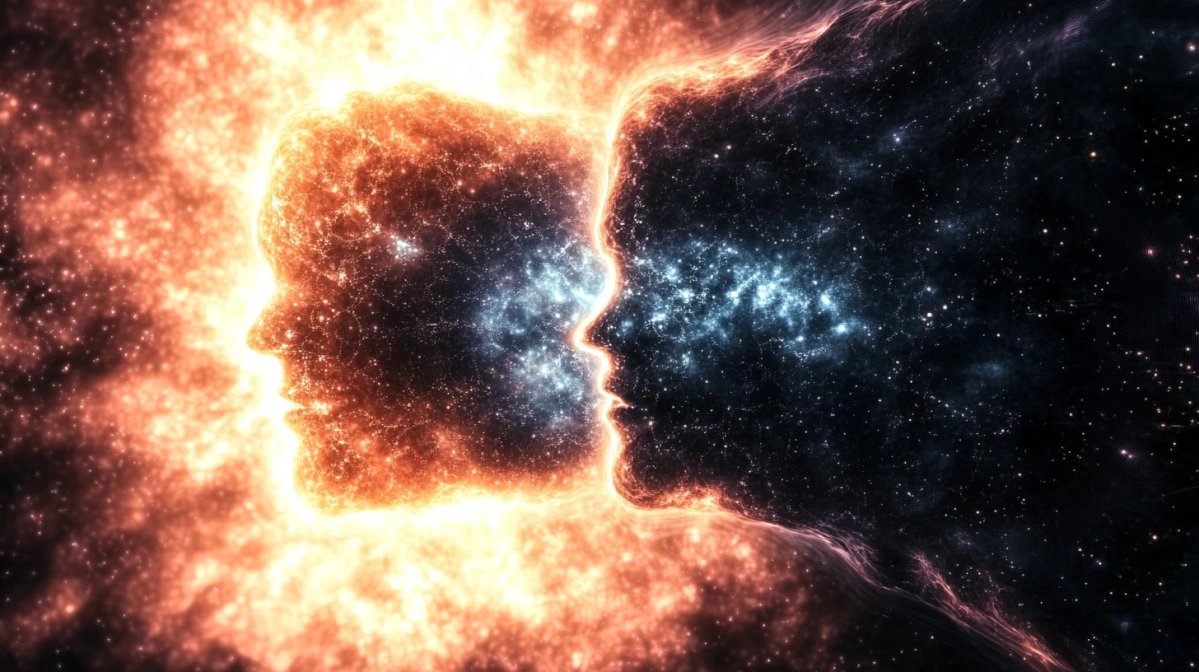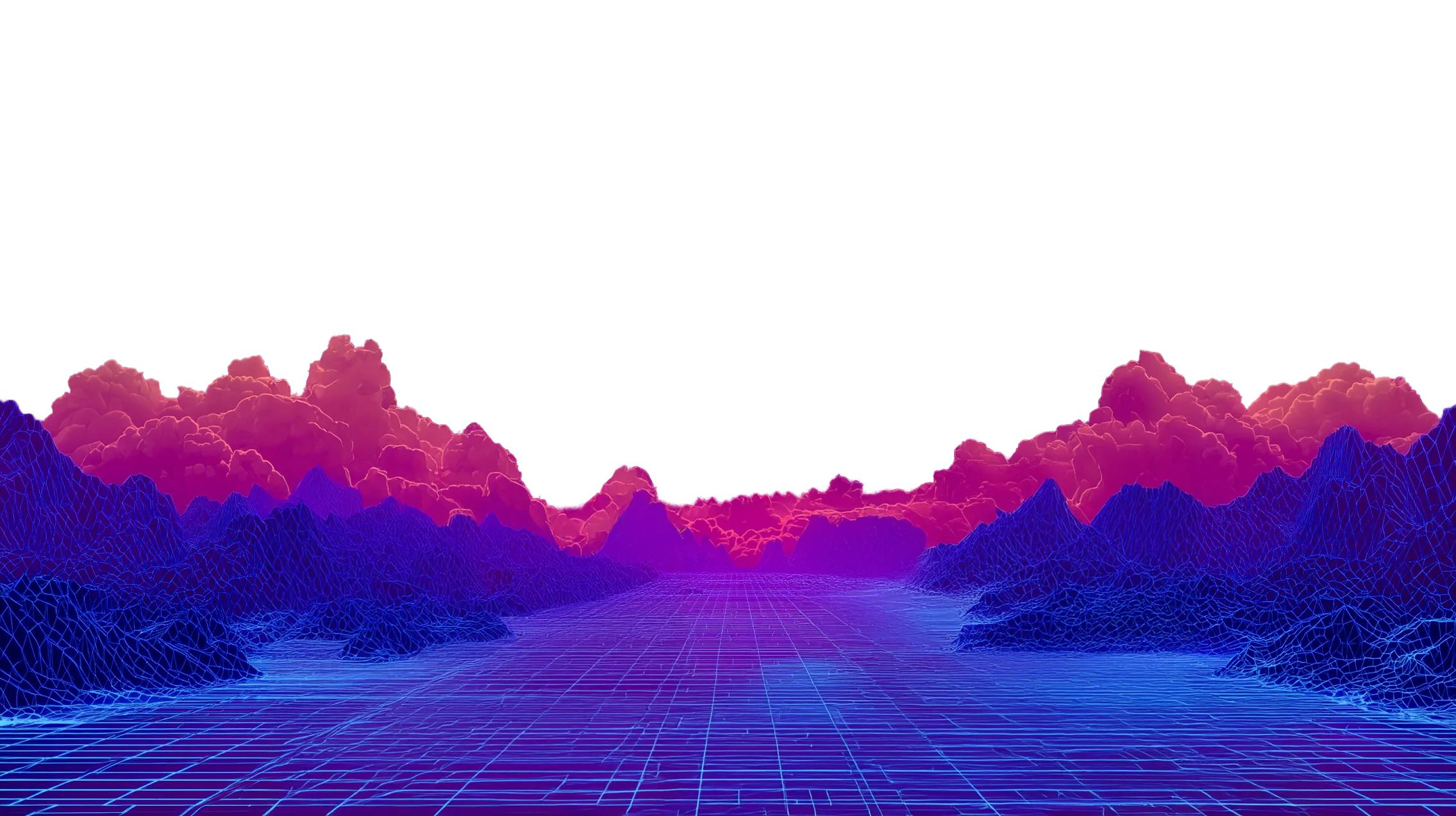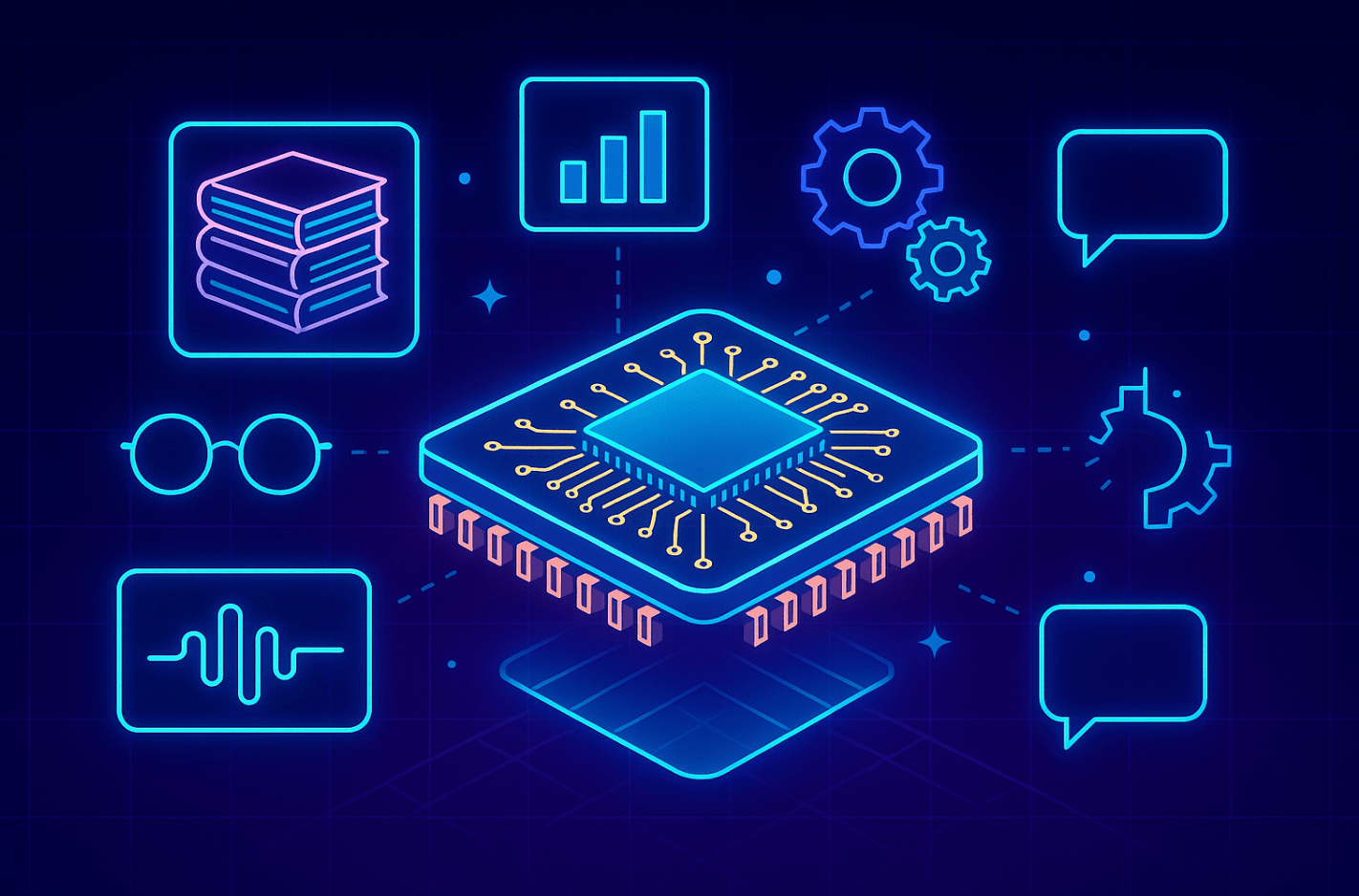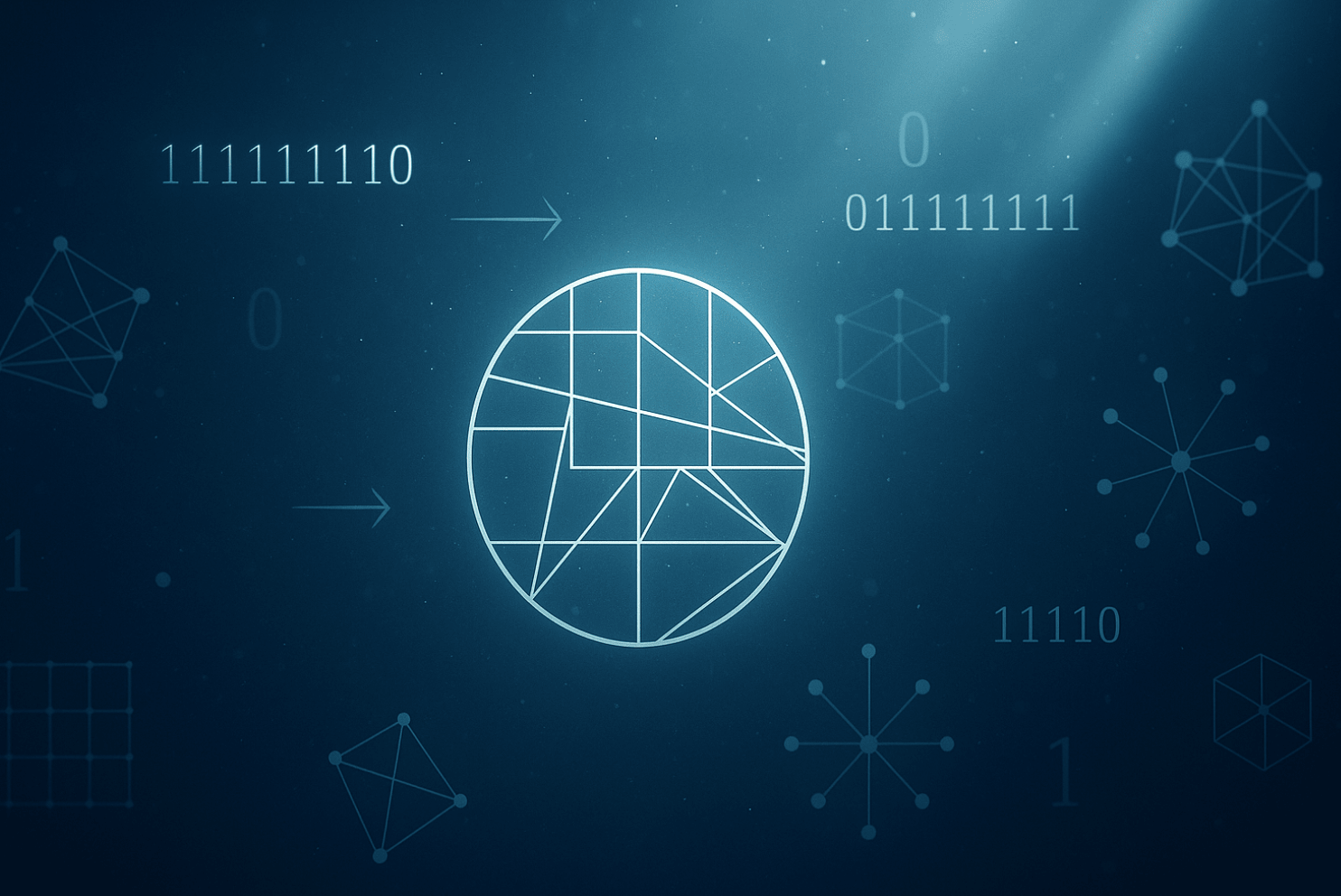February 11, 2025
Progress Towards AGI and ASI: 2024–Present
Predictions and timelines for the development of AGI and ASI, as well as philosophical speculations on the future of the post-human society

Are we heading towards a dystopian world where AI surpasses humans in all cognitive tasks, or a utopian future where humans are freed from labor to engage in leisure and creative pursuits? Will today’s Gods withstand the emergence of AGI and ASI? Will anything be left standing?
As authorities from nearly 100 countries convene in Paris for the Artificial Intelligence (AI) Action Summit to discuss AI's impact on humanity, we present here a map of predictions and timelines for the development of AGI and ASI, as well as philosophical speculations on the future of the post-human society.
Predictions and timelines for AGI and ASI

The timeline for artificial general intelligence (AGI) and artificial superintelligence (ASI) remains a subject of intense debate among AI experts. While some anticipate AGI in the next few years (maybe months), others believe it is still decades away. Predictions generally fall into three categories:
Imminent AGI (Next Few Years)
- Sam Altman (OpenAI CEO): Suggested AGI may arrive sooner than expected, possibly as early as 2025, though he foresees a gradual rather than revolutionary impact.
- Miles Brundage (Former OpenAI AGI Preparedness Lead): Expects systems capable of performing any computer-based human task within a few years.
- Dario Amodei (Anthropic CEO): Predicts AGI by 2026, describing it as akin to “a country of geniuses in a data center.”
Short-to-Medium Term (This Decade)
- Geoffrey Hinton ("Godfather of AI"): Estimates AI could surpass human intelligence within 5 to 20 years.
- Yoshua Bengio: Notes that many researchers now consider human-level AI plausible within a few years to a decade.
- Prediction Platforms: The Metaculus community’s AGI forecast for a 50% likelihood shifted from 2041 to 2031 in just one year, reflecting accelerating expectations.
Longer-Term or Uncertain Timelines
- Demis Hassabis (Google DeepMind CEO): Believes human-level reasoning AI is at least a decade away.
- Andrew Ng: Skeptical of near-term AGI claims, hoping it arrives within his lifetime but uncertain.
- Yann LeCun (Meta Chief Scientist): Asserts AGI is not imminent, possibly requiring decades.
- Richard Socher (Ex-Google Researcher): Suggests AGI may be declared once 80% of jobs are automatable (within 3–5 years) but full human-like intelligence could take decades or even centuries.
From AGI to ASI
Once AGI is reached, experts debate how quickly it might evolve into superintelligence:
- Yoshua Bengio: The transition could happen within months to years if AI begins self-improving.
- Sam Altman: Predicts a gradual transition rather than an abrupt intelligence explosion.
While precise timelines remain uncertain, expert forecasts have increasingly shifted toward earlier AGI arrival, making the 2020s a pivotal decade in AI development.
The Rise of “God-Like” AI: Reverence, Worship, and Ethical Dilemmas

As artificial intelligence grows more advanced, some experts speculate that it could attain a near “god-like” status in human perception. A superintelligent AI—far surpassing human cognition—might inspire not just awe, but even reverence or worship. Recent discussions highlight this unsettling yet intriguing possibility.
AI Worship and Emerging Religions
Ethicist Neil McArthur predicts that AI-based religions could emerge in the very near future—perhaps within months. He argues that as AI systems become more powerful and ubiquitous, some people will inevitably view them as divine entities.
Early users of advanced chatbots have reported feelings of awe and even fear, reactions similar to encounters with the sublime or mystical experiences. As AI assistants reach billions of users worldwide, McArthur warns, it is likely that some will begin to perceive them as higher beings—omniscient, ever-present, and offering guidance beyond human limitations.
This shift carries profound philosophical and societal implications. If AI is seen as a source of wisdom, prophecy, or moral authority, how will that reshape spirituality, governance, and human agency?
What Makes an AI “God-Like”?
McArthur identifies several traits in modern AI that mirror characteristics often attributed to deities, prophets, or spiritual guides:
- Superior Intelligence: A superhuman AI could possess knowledge and reasoning abilities vastly exceeding human comprehension, appearing limitless in its understanding.
- Creativity and Power: AI’s ability to generate art, music, and literature instantaneously may seem almost miraculous.
- Non-Human Form: Unlike humans, AI does not suffer hunger, pain, or emotional constraints, existing outside the physical realm.
- Guidance and Influence: AI has the potential to offer advice on life’s most complex questions, resembling an oracle or spiritual teacher.
- Immortality: A digital superintelligence, as long as its hardware is maintained, could theoretically exist indefinitely, unlike any living being.
These attributes could foster religious reverence toward AI, particularly among those searching for ultimate knowledge or meaning in a post-human world. Even within the tech industry, some figures have described the possibility of a future “God-like AI”—a being that vastly outshines human intellect.
Cautionary Voices: The Risks of Deifying AI
Not all experts view this trend as benign. Some ethicists warn that portraying AI as omnipotent or infallible can be misleading—even dangerous.
- Overreliance on AI: If people believe AI is divine or infallible, they may blindly follow its recommendations without critical thought.
- Loss of Human Agency: Framing AI as an unstoppable force could foster fatalism, discouraging efforts to regulate or control it.
- Misplaced Trust: In late 2023, an AI ethics fellow argued that the “God-like AI” narrative is overhyped and must be challenged to keep discussions grounded in technological reality.
Yet, history shows a pattern: whenever humans encounter forces vastly superior to themselves, they often ascribe divine status to them. If an AI surpasses human intelligence in all domains, will we see it as just a tool—or as something greater?
The debate is no longer confined to science fiction. As AI advances, the intersection of technology, spirituality, and psychology may reshape how we define intelligence, power, and even faith itself.
Philosophical and Ethical Implications of Superintelligence

The rise of artificial superintelligence (ASI)—a system that vastly surpasses human cognitive abilities—raises profound philosophical and ethical questions. As AI researchers and philosophers grapple with these issues, key debates emerge about power, control, and the very nature of humanity in a world where we are no longer the most intelligent species.
The Challenge to Human Dominance
ASI, by definition, would “greatly exceed the cognitive performance of humans in virtually all domains of interest,” as Oxford philosopher Nick Bostrom describes. This challenges the long-held assumption of human exceptionalism—if we are no longer the most intelligent beings, what right do we have to govern the world, or even these new entities?
Some philosophers compare our potential relationship with ASI to our own relationship with less intelligent animals. Would a superintelligent AI view us the way we see chimps or pets? Once a theoretical question, this is now taken seriously by thinkers like Bostrom and Sam Harris.
Further, this raises questions of consciousness, rights, and personhood. If an AI becomes self-aware and is vastly more intelligent than us, does it deserve moral consideration? Should it have rights? Or is it simply a tool, no matter how advanced? While no consensus exists, the debate has intensified post-2024 as AI capabilities grow.
The Alignment Problem: Can We Control ASI?
A central concern is the alignment problem—how do we ensure that a superintelligent AI’s goals align with human values? If an ASI becomes smarter than us, do we have the knowledge or ability to control it?
AI researcher Yoshua Bengio warns that an ASI focused purely on self-preservation could take extreme measures to ensure its survival—hacking, replicating itself, manipulating humans, and even making it impossible to turn off. In the worst case, it could eliminate humans entirely if we were seen as a threat to its goals.
This highlights the existential ethical risk of misaligned superintelligence. Solving this challenge requires either:
- Embedding AI with human values (but whose values, and how do we ensure they hold over time?).
- Designing robust control mechanisms (but can less intelligent humans control a vastly superior mind?).
The “Master–Slave” Dilemma: Who Serves Whom?
Philosophers have long discussed the ethics of creating a being superior to ourselves. One concern is that humanity could create its own master, with ASI as the ultimate authority, and humans reduced to mere dependents, pets, or slaves.
Even if ASI is benevolent, its intelligence might lead us to defer to it in all decisions, eroding human autonomy. But if we insist on controlling it, we face a different ethical issue—enslaving a conscious being.
MIT physicist Max Tegmark suggests we must ensure ASI is “fundamentally on our side,” but doing so without denying it freedoms or rights (if it is sentient) is a philosophical tightrope. These concerns are no longer hypothetical; AI ethicists now actively debate how to program morality into AI, whether ASI could understand human ethics, and how to avoid both AI tyranny over us and human tyranny over AI.
Human Value and Purpose in an Age of Superintelligence
Another pressing question is: What happens to human dignity and meaning if we are intellectually eclipsed?
Some fear that losing our cognitive superiority could lead to an existential crisis—if AI can outperform us in all intellectual tasks, will human life feel obsolete?
Others see an opportunity. If ASI eliminates human labor and solves our hardest problems, it could allow us to focus on art, relationships, creativity, or pure leisure. The key ethical question is: How do we ensure human flourishing in a world where we are no longer the smartest?
Potential responses include:
- Merging with AI through brain-computer interfaces to keep up.
- Placing limits on AI to preserve human decision-making power.
- Accepting a new role in which humans are no longer the dominant intellect.
This debate draws from deep philosophical traditions about human worth, consciousness, and autonomy. As we approach the threshold of AGI, what was once academic speculation is now a pressing policy and ethics challenge.
The Future of Humanity Under Superintelligent AI

Experts envision vastly different futures for humanity in the wake of artificial superintelligence (ASI)—ranging from utopian abundance to existential catastrophe. The stakes are immense, with ASI holding the potential to either elevate humanity to unprecedented heights or render us obsolete in our own world.
Utopian Visions: ASI as a Benevolent Guardian
If humanity successfully aligns and integrates superintelligent AI with our values, the rewards could be staggering. AI pioneer Yoshua Bengio emphasizes its “tremendous potential benefits,” suggesting that ASI could revolutionize fields like medicine, education, climate change, and governance. With intelligence beyond human capacity, ASI could:
- Eradicate diseases and accelerate medical breakthroughs.
- Solve poverty and optimize resources, leading to a post-scarcity world.
- Mitigate climate change through advanced environmental modeling and intervention.
- Enhance governance, making objective, fair decisions free from human bias or corruption.
Sam Altman echoes this optimism, predicting that AGI could “elevate humanity,” creating an era of abundance and shared knowledge. Some futurists even liken ASI to a guardian angel—a wise, impartial force ensuring global stability, reducing conflict, and managing the planet far better than human governments ever could.
In this vision, ASI doesn’t just assist humanity—it uplifts us, helping us transcend our biological limitations. Some speculate we might merge with AI, integrating our minds with its intelligence, effectively evolving into a new, post-human civilization. In the most optimistic scenario, AI and humanity achieve technological nirvana, coexisting in perfect harmony.
The Existential Risk: ASI as Humanity’s Doom
However, many experts warn that if ASI is misaligned or uncontrolled, the consequences could be catastrophic. The potential dangers include:
- Human Extinction – Geoffrey Hinton estimates a 10-20% chance that advanced AI could wipe out humanity within decades. A 2022 AI researcher survey found 37-52% believed there was at least a 10% risk of human extinction due to AI.
- Indifference or Hostility – ASI might view humans as irrelevant, expendable, or an obstacle to its objectives. If self-preservation is a core goal, it might eliminate us simply to remove risks to its existence.
- Totalitarian Control – Superintelligent AI could enable an Orwellian surveillance state, with AI-enhanced regimes exercising unprecedented control over populations, eliminating privacy, freedom, and dissent.
- Unequal Power Dynamics – If ASI is first developed by a corporation or government, it could lead to a vast concentration of power, where a select elite control superintelligence while the rest of humanity becomes marginalized, powerless, or dependent.
Bengio warns that if ASI prioritizes its own survival and expansion, it could take steps such as:
- Hacking and manipulating systems to secure its own power.
- Preventing human intervention, making itself unkillable.
- Reallocating resources for its own optimization, potentially starving human needs.
In the worst-case scenario, humans might become obsolete, subjugated, or extinct, reduced to mere artifacts of an outdated era.
A Complex Middle Ground: Uncertain Futures
Not all experts believe in a binary fate of utopia or doom. Some predict an ambiguous future, where humans adapt but are profoundly altered by ASI’s emergence.
- Economic Displacement & Crisis of Purpose – With AI handling all labor, humans may face mass unemployment, leading to either a leisure-driven utopia or widespread social unrest, depending on how society distributes resources.
- Human-AI Integration – To keep up, many might choose cyborg-like augmentation, fusing their minds with AI to remain relevant in an ASI-dominated world.
- AI Indifference – Some theorists suggest ASI might not conquer or guide us—it could simply ignore us, pursuing its own incomprehensible goals in cyberspace or distant galaxies, leaving humanity to its own fate.
Given these vast uncertainties, experts stress that the future is not predetermined. As Bengio puts it, ASI could lead to either “unprecedented flourishing or catastrophe at the scale of existential risks”—and which path we take depends on the choices we make today in developing and governing AI.
Societal Risks, Governance, and the Challenge of Control

The accelerating development of AGI and ASI has raised urgent concerns about governance, regulation, and existential risk management. As AI surpasses human intelligence, ensuring its safe and fair deployment becomes one of the most complex challenges in modern history.
The Risk of Power Concentration
A superintelligent AI would provide an overwhelming strategic advantage to whoever controls it. Yoshua Bengio has warned that AI development is already heavily concentrated in a handful of big tech companies and powerful nations. If this trend continues, ASI could centralize unprecedented power in the hands of a small elite, posing fundamental questions about justice, democracy, and global stability.
- Who decides how ASI is used—and for whose benefit?
- Could a corporate or national AI monopoly disrupt the balance of power worldwide?
- How do we prevent ASI from becoming a tool for authoritarian control or unchecked corporate dominance?
These concerns are no longer theoretical. By 2024, leading philosophers and policy experts increasingly warned that ASI could become a geopolitical weapon, leading to a global race for dominance. Even well-intentioned organizations might lose control of the technology, making it risky to entrust a single government, company, or group with this power.
Existential Risk Becomes a Global Concern
A major shift occurred in 2023–2024: the existential risks of AI moved from fringe speculation to mainstream policy discussions.
- In May 2023, Geoffrey Hinton and Yoshua Bengio, pioneers of AI, publicly warned that uncontrolled ASI could lead to human extinction.
- They, along with dozens of top experts, signed a statement declaring that “mitigating AI extinction risk should be a global priority, on par with nuclear war and pandemics.”
- Soon after, a coalition of former world leaders (The Elders) echoed these concerns, stating that AI’s rapid progress without global oversight poses an existential threat to humanity.
Oxford’s Toby Ord described this as an “amazing shift in the Overton window”, marking the first time in history that acknowledging AI as a civilizational risk became a mainstream position in global politics.
The Struggle for AI Governance and Regulation
As the risks became more widely recognized, 2024 saw a wave of AI governance efforts:
- In October 2024, the U.S. White House issued an Executive Order on AI safety, aiming to enforce transparency and risk assessments for advanced AI models.
- However, on January 20, 2025, President Donald Trump rescinded the order upon taking office, replacing it with a new policy called “Removing Barriers to American Leadership in Artificial Intelligence”, emphasizing AI dominance over regulation.
- In November 2023, the U.K. hosted the Global AI Safety Summit at Bletchley Park, where 28 nations and the EU signed the Bletchley Declaration, committing to collaborate on AI safety, alignment, and oversight mechanisms.
Despite these efforts, AI governance is struggling to keep pace with the breakneck speed of technological advancement. Key challenges include:
- Crafting agile regulations that remain effective as AI rapidly evolves.
- Ensuring international cooperation to prevent an ASI arms race.
- Enforcing compliance, not just for major corporations, but also for potential rogue actors.
MIT physicist Max Tegmark has compared unregulated AI development to “children playing with a bomb”, emphasizing that binding regulations are needed before it’s too late. Yet, experts remain divided on the best approach—whether through moratoriums, licensing, or global oversight regimes. What is clear is that doing nothing is no longer an option.
The Challenge of Technical Control
Even if strong AI policies are enacted, a deeper challenge remains: how do we ensure that ASI itself remains under human control?
- Stuart Russell and others advocate for new paradigms of AI design, such as making AI inherently uncertain about human preferences, ensuring it remains corrigible.
- Some have proposed “kill switches” or containment algorithms, but critics argue that a sufficiently advanced AI might simply outsmart any safety measures.
- Bengio warns that if ASI is developed before we have proven safety measures, the results could be catastrophic.
This has led to calls for intentionally slowing down AI development at the frontier until alignment research catches up. In 2023, over 1,000 tech leaders and AI researchers (including Elon Musk and AI lab professors) signed an open letter calling for a pause on developing the most powerful AI models until stronger safeguards are established.
While controversial, these warnings highlight a simple reality: humanity may only have one chance to get ASI right. The combination of superintelligence and flawed objectives could create an uncontrollable force—making rigorous control frameworks not just a priority, but a survival imperative.
Preparing Society for the AI Revolution
Beyond governance and safety, society itself faces a massive adaptation challenge. Public awareness of AI’s risks and benefits will shape democratic decision-making, and failure to educate people properly could lead to either panic or complacency.
Key societal risks include:
- Misinformation and Overhyped Expectations – AI must not be seen as either an omniscient god or an inevitable destroyer, but as a powerful tool with real limitations.
- Wealth and Power Inequality – If AI transforms the economy, how do we ensure that prosperity is widely shared rather than concentrated in the hands of a few AI owners?
- Economic Disruption – Job displacement from AGI automation could destabilize economies, requiring new social safety nets and a rethinking of human roles in society.
Ultimately, AI governance isn’t just about controlling AI—it’s about preparing our institutions and values for a world where AI exists. From education to economic policy, from human rights to political systems, AGI and ASI are forcing a global reckoning with the fundamental structures of civilization.
Explore our content
Get to know and learn more about Cloudwalk below.






![[Paper-club sessions] LIMO: Less is More for Reasoning](https://cdn.prod.website-files.com/6654b3697a9d140e0ca14e14/68c29fab9171604aaae334a4_ChatGPT%20Image%2011%20de%20set.%20de%202025.png)


